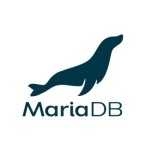The client is using the solution for supply chain management, and at the same time, our enterprise uses it to track the businesses' performance. The rest of our regions are going to be using SAP ECC. We are the first region to go with HANA. We were shortlisted to show them the roadmap and guide them. Supply chain management and tracking raw materials were areas of concern.
The IBP module was the most useful followed by the FI/CO and CNMM modules.
The product could be improved in several ways.
First, before carrying out a project with this environment size, a POC needs to be carried out, for which you would have access to various environments. And those environments are something that SAP should invest in and others should provide. That would be an improvement.
Second, some good amount of handholding, guidance, or other validation or certification from SAP at different levels.
Third, access to tools for a longer period than the pre-defined trial version license. That's something that we can ask our friends from SAP to extend or make available in a different licensing model at zero cost.
I have three years of experience with the solution.
The solution is very stable. We would rate its stability as eight out of 10.
We would rate the scalability of the solution as eight-plus on a scale of one to 10.
The initial setup was pretty complex, considering the enormous amount of data they had from an Oracle ERP. Migration was an especially painful task, but we managed to sail through it thanks to the support of our customer. We delivered it within the timelines. We managed a few escalations. We worked with the customer. We had a weekly stand-up with the customer and various workshops and sessions to educate them and highlight the challenges.
Implementation was completely in-house with a team of around 18 to 22 people and a couple of people from SAP, who looked at the overall program management level, providing guidance plus certifying that best practices were being followed and implemented.
The deployment, moving from Oracle to SAP HANA, took around eight months
The customer took care of all the SAP license costs. Our scope was primarily implementation and migration support.
Oracle ERP had the flexibility, but it didn't have the functionality that the customer was looking for.
We would give the product an overall rating of nine out of 10.
We have an entirely SAP family, which makes it easy to manage and support. The customer opened its first, and we are doing multiple instances of SAP ECC implementations for the rest of the small countries in APAC, the Middle East, and Africa.
Around 175 to 250 people use the solution at every level of the customer's organization.
We will be providing maintenance for the next five years.
My advice would be to explore and play with the different systems available in the market. But, ultimately, look for a system with a brand, broad user usability, and support. For instance, my customer wanted to explore an open-source ERP. We persuaded him to go with SAP, primarily because they have the expertise. They adhere to the best policies. They offer support, etc.
If you don't have all this, don't explore freebies. Go for a licensed version, recommended globally, and highly rated by Gartner or various research and consulting firms.



















